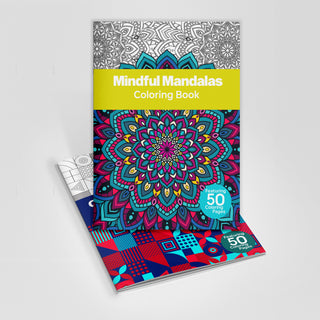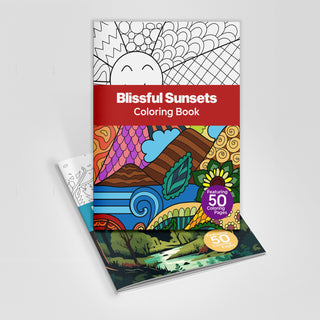As much as we might not want to admit it, money matters. If you have ever had to struggle in life because you did not have enough money, you know what I mean.
We all require a certain amount of money to live comfortably, and if you want to live more extravagantly then you will require even more money.
Money gets a bad rap. You may have heard the saying, “Money is the root of all evil.” Yet, money isn’t bad in and of itself, it’s just how people use and abuse it.
Debt in America is at an all-time high.
People borrow tens of thousands of dollars to attend prestigious colleges, couples feel they should be able to have everything of the best quality in their first apartment or house, and the population in general has an attitude of entitlement.
The best furniture, appliances, technology - think iPads, cell phones, widescreen TVs, and laptops - adorn the homes of people who do not make enough to buy these things.
America’s love affair with vehicles is seen on the roads where people are driving fancy cars and trucks.
They don’t have the money to afford to pay for these things, so how do they get them?
Credit cards.
The almighty credit card has given people the false belief that they can and should have the best and the most expensive.
Credit card debt in the States hit a whopping $1,031 billion in the second quarter of 2023. That was up from $887 billion at the same time last year.
Credit card debt is putting people, lots of people, in the poorhouse as they are never able to pay off the enormous debt plus interest on what is often multiple cards.
If you want to change the way you think about money and spending, if you want to be happy and secure financially then responding to the journal prompts in this article will help you.
Let’s jump in!
Journal Prompts For A Better Money Mindset
I am old enough to remember a time when people didn’t spend the way they do now.
My parents were frugal, meaning they didn’t spend willy nilly, and they didn’t live beyond their means - what they could afford, in cash.
The fact is that people are not educated about money. I definitely include myself in that category.
I thought that listing my expenses every pay period was great budgeting, but I was very wrong. I still spent beyond what I could afford, and ended up with a sizable credit card debt that took me years to pay off.
Money can be our friend. We just need to get smarter about it, and that starts with knowing our personal finances.
I love the prompts in this category. They get us thinking about how we see money and how we use it.
These considerations are absolutely necessary to changing how you view and handle money. For example, you might want to write about the following prompts:
How do your emotions influence your spending and saving habits? Can you identify any patterns or triggers that lead you to make financial decisions that you later regret?
How much money do you make in a month? How do you budget it?"
Choose some prompts from the list below and start your positive money journey!
40 Journal Prompts For Better Money Mindset
1. "What will a good money mindset mean for other areas of your life?"

2. "What new resources could you use to stay informed and on track with your financial goals?"
3. "When you purchase things for yourself, your family, or your home, how long is it on average before those things are replaced by something newer, better, or different? Do you feel that you get a long life out of the things you buy? Why or why not?"
4. "How has your budget changed over time?"
5. "How do your emotions influence your spending and saving habits? Can you identify any patterns or triggers that lead you to make financial decisions that you later regret?"
6. "How much money do you make in a month? How do you budget it?"
7. "What cultural expectations do you experience around money? How have these contributed to your past behaviors?"
8. "Would you enjoy having a money accountability buddy? Who in your life would you trust to be this person? How could they help you achieve your financial goals?"
9. "Do you use online money management tools or apps? Why or why not?"
10. "How do you feel about retirement? Do you plan to retire? If so, is it important to you to retire early? Why or why not?"
11. "Do you have a retirement plan in place? How do you contribute to it and track your progress?"
12. "How can you set better boundaries around money, such as around financial decisions or impulse spending?"
13. "Do you feel that you could be more “in charge” of your finances? If so, what are 3 ways you could be more financially responsible?"
14. "How do you handle unexpected expenses? How do you plan for them in your budget?"
15. "What are your biggest expenses? How do you prioritize them in your budget?"
16. "Describe your ideal budgeting structure."
17. "Do you have any financial heroes? If so, who?"
18. "List 3 areas of financial literacy where you could improve your understanding."
19. "Describe your money mindset using 5 adjectives. Why do you want to improve it?"
20. "What are your strategies for saving money? How do you stay motivated to stick to them?"
21. "Describe how you envision your finances 5 years from now."
22. "Describe how being financially literate would empower other areas of your life."
23. "Are you currently earning money? How much do you have saved and/or invested?"
24. "Have you ever experienced financial hardship? How did you overcome it?"
25. "Do you agree with the phrase: “Find a job you love and you’ll never work a day in your life”? Why or why not?"
26. "Would you feel more comfortable learning about finances in a community or group setting?"
27. "Where do you learn about new financial concepts?"

28. "What are you always unhappy to spend money on? List 5 things."
29. "What would you like to be different about your budgeting and planning this year compared to last year?"
30. "What is your favorite thing that you have ever bought for yourself?"
31. "What are you always happy to spend money on? List 5 things."
32. "List 10 words you associate with the phrase “financially independent.”"
33. "What do you spend money on that you probably shouldn’t? Whose voice is in your head telling you that you “shouldn’t” spend money on these things? Why?"
34. "When did you first learn about managing your own finances? Do you think the information you learned is still accurate and relevant to your life? How has it changed?"
35. "What are your financial goals for the next year? How do you plan to achieve them?"
36. "What does financial literacy mean to you? What areas of your life does it cover? How can you expand your definition?"
37. "What’s the most expensive thing you’ve ever bought for yourself? What’s the least expensive? How were these things different from each other, other than the price tags?"
38. "Do you use coupons or discount codes (paper or digital)? What were the last 3 coupons you used?"
39. "Where do you fall on the spectrum of attention to your own finances? Do you prefer to “stick your head in the sand”, keep track daily, or are you somewhere in the middle?"
40. "What is your favorite thing that someone else has bought for you?"
Money Mindset Journal Prompts For Abundance
Abundance. The word means ample or a lot of something. We can use the word abundant to describe how we live our life.
This could mean having great health and the ability to get out and do all of the activities we want to do.
An abundant life could refer to having many blessings in the way of children and grandchildren.
Abundance can also take the form of having all of the things you want like a boat, great clothes, a luxury car, two or three vacations a year, a fabulous home and so on.
A critical aspect of achieving abundance is having healthy finances, and the first step is to come to terms with every penny that comes in and goes out of your bank account and your wallet.
Take control of your finances. Have a goal for what you want from your money, and make a plan for how to get there.
Then stick to it, and make adjustments along the way as necessary.
The journal prompts below will help you with this. If you can get control of your money, you can make it grow, and that will get you the kind of life you dream of.
28 Money Mindset Journal Prompts For Abundance
41. "Have I updated my budget? How am I tracking against my budget so far? How do I improve it?"
42. "What expenses can I reduce to save money? How do they help toward my savings goal?"
43. "What is my debt situation? How much debt do I have? What debt do I have? How am I paying down my debt?"
44. "What is my spending behavior? How do I track my spending behavior? Why is it important to track my spending behavior?"
45. "Have my views on money changed?"
46. "What are my financial goals for the next year?"
47. "Have I made financial goals next five years? The next ten years? Why or why not?"
48. "What is my current wealth mindset? How does it affect my financial behavior? How do I change it?"
49. "Do I have a good relationship with money or do I have a bad relationship with money?"
50. "What do I value about money and what are my goals for it?"
51. "What are my financial goals for the future? Why is it important to set goals for the future? How am I tracking towards my goals for the future?"
52. "What are my financial obligations? How am I meeting my financial obligations?"
53. "What is my savings rate? Why is it important? How can I improve it?"
54. "What was the way my family viewed money and how did it work?"

55. "What is my net worth? How do I calculate it? Why is this important?"
56. "What is my current budget? If I do not have a budget, why not? How can I improve my budget? What budget tools can help me track my spending?"
57. "What expenses are non-negotiable? How do I minimize these expenses? How can I afford these expenses while saving money?"
58. "What is my current financial situation? What are my financial goals? If I do not have any goals why not? How am I tracking toward my goals?"
59. "What money mistakes have I made in the past? How can I learn from my mistakes?"
60. "If I have a lot of money, what will people think of me?"
61. "What is my investment portfolio? Why is it important? How are my investments performing?"
62. "What is my emergency fund balance? How can I increase my emergency savings? What are my goals for my emergency fund?"
63. "What is my credit score? Do I need credit to improve my credit score? How can I improve my credit?"
64. "My first memory of money when I was a child was?"
65. "What is my financial situation today? What is my financial situation going to be in the future? Why?"
66. "Is there anything I believe about people with a lot of money?"
67. "What is my income source(s)? How can I increase my income? What are my financial goals for income improvement?"
68. "What is the biggest financial challenge I have faced in my life so far and how did I overcome it?"
Journal Prompts For A Stable Money Relationship
For many years, I handled my finances without really knowing the details of how I was spending my money.
I had five children and there were a lot of expenses. I ended up putting some things on credit cards and I thought that was totally fine.
The problem is that my credit card debt got bigger and bigger.
I was never able to pay off my balance at the end of a month, and I was soon living under the strain of this terrible weight that I dragged after me all the time.
Getting out of debt and getting my money matters in order required a change in my attitude towards money and spending.
This psychological change has been substantial. I do not allow myself to go into debt, and I save until I have the funds to pay for something.
I have an emergency fund, plus I keep a sinking fund for big purchases that I need to save up for.
I am no longer afraid of my finances.
There are times when I am tempted to go to the bank for a line of credit to get some home improvement project done, but then I look at the prompts in this list and journal about them, and I get back to thinking the way I should think.
Let these prompts below help you to have a healthy mindset about and a stable relationship with money.
14 Journal Prompts For A stable Money Relationship
69. "Why do you feel you are in your current financial situation?"
70. "Do you want to change your current financial situation? Why?"
71. "What would your life look like if you didn’t have to worry about money?"
72. "What is your biggest money ‘worry’ right now?"
73. "Describe your most memorable money experience."
74. "Has anyone ever made you feel not ‘good enough’ because of money? Describe that situation. "
75. "What are your current financial goals?"
76. "What financial goals have you had in the past that you have achieved?"
77. "How do you feel when people start talking about money?"
78. "What is the biggest money lesson you’ve learned?"
79. "How would you like to feel about money?"
80. "Do you feel confident with your understanding of your current money situation?"
81. "Do you believe that having more money changes people? If so, how?"
82. "Do you like money? Do you think money is good or bad?"

Frequently Asked Questions
What Types Of Questions Are Included In Money Mindset Journal Prompts?
Money mindset journal prompts cover a wide range of topics, including financial goals, budgeting, spending habits, saving, investing, and financial planning. They are designed to address various aspects of financial well-being.
How Do I Use Money Mindset Journal Prompts Effectively?
To use these prompts effectively, find a quiet and comfortable space for journaling. Select prompts that resonate with your financial goals and challenges. Spend time writing detailed responses, exploring your thoughts and feelings about money.
Can Money Mindset Journal Prompts Help Me Improve My Financial Situation?
Yes, these prompts can be a valuable tool for improving your financial situation. They encourage you to analyze your financial habits, set clear financial goals, and develop strategies for achieving financial success.
Continue Reading 👉: 29 Fabulous Prompts To Inspire Ideas To Successfully Sell Your Product






















